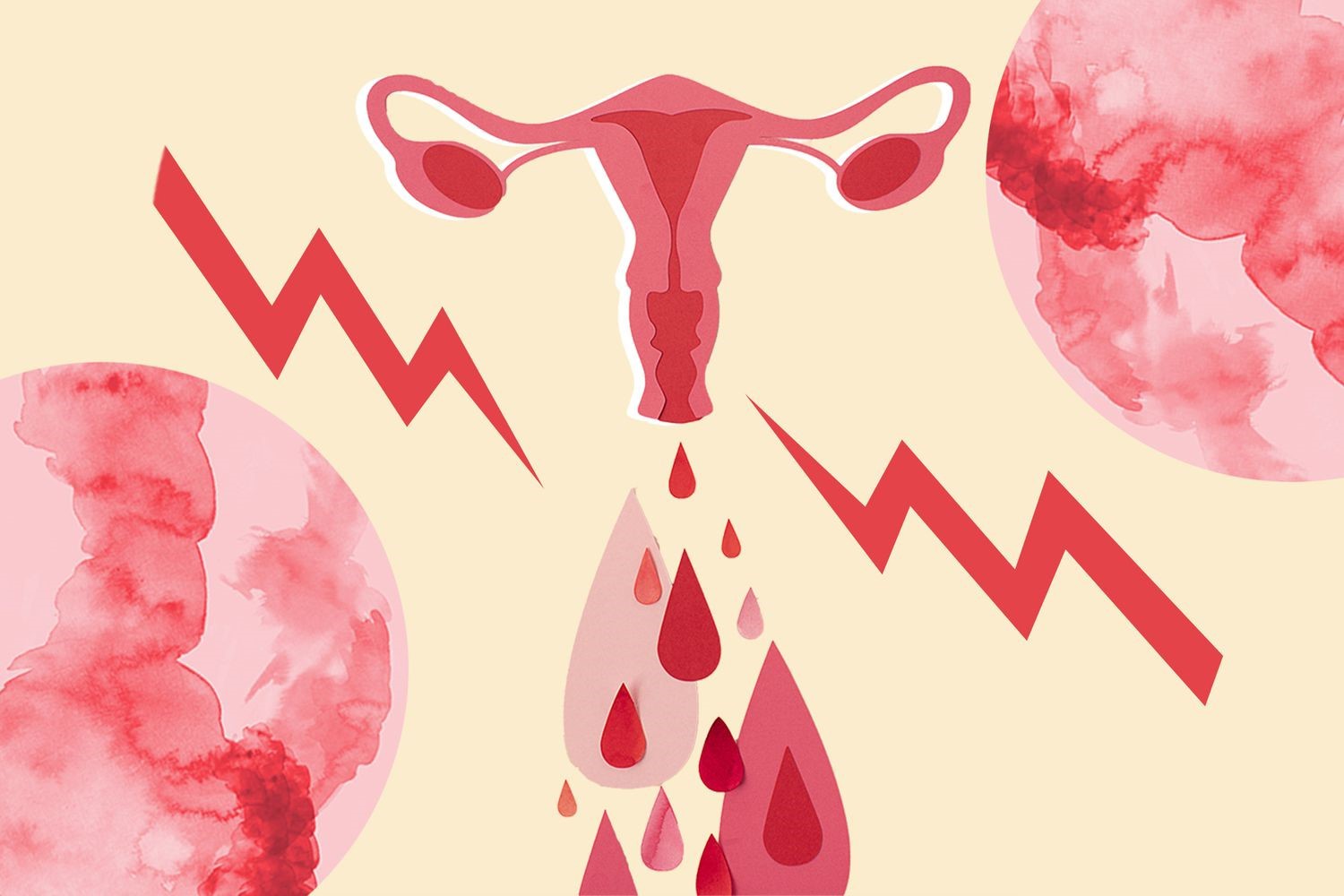Dear Dub: Is This Normal? Time to Change the Discourse Around Periods
The first time I had my period was when I was in seventh grade. It was the first day of soccer tryouts and I had trained all summer to make the A team. I woke up that morning and had convinced myself I was dying. It felt like someone was stabbing me in the belly over and over while simultaneously punching me in the back. I was bleeding through two maxi pads an hour, and I felt nauseous all day, and no, it wasn’t nerves about tryouts.
My knowledge of periods had come from the very shallow health classes I had received in fifth and sixth grade, the charming descriptions and diagrams from the classic book “The Care and Keeping of You” by Valorie Schaefer, and horror stories from my older sister and her friends of bleeding through their pants in class. While all of these sources seemed to do the best with what they had, they did not at all prepare me for what to expect.
I had incredibly heavy and painful periods for about three years. I would wake up in the middle of the night throwing up, wouldn’t be able to participate in sports practices or games, and had to stay home from school several times due to the immense pain. I was under the impression from sex ed class that everyone experiences a little pain during their periods. After all, “Your body is preparing itself to have a baby! How exciting!” (a common narrative I read in my J-14 Magazines and heard in health class).
I tried to feel this excitement, but it was clouded by not being able to participate in my regular life. Also, I was 13! I didn’t want to think about having a baby! Everything I had read or learned about periods always mentioned “minor cramping” that you could remedy with “a hot bath and some Tylenol.” Unfortunately, the baths and Tylenol didn’t do the trick for me.
I remember having a conversation with my doctor who suggested I take oral contraceptives to alleviate these symptoms. I was open to it, so I took birth control pills for about five years, and my heavy and painful periods were certainly alleviated; however, I decided to go off the pill when I realized the negative impact it was having on my mental health, specifically making me angry, impulsive, and depressed as if my brain had been hijacked. Throughout this entire painful-periods-heavy-bleeding-birth control-side-effects journey, I kept asking myself (and my mom and my friends), “Is this normal?” Do all people who experience periods go through this? If so, why hadn’t I heard about the magnitude of it until I experienced it myself? If not, what did this say about me and my body?
It wasn’t until I got to college, took some Public Health, Sociology, and Gender Studies classes, and met people who had similar experiences and concerns that I had some sense of clarity about the truth behind all of this. It comes down to the fact that there is such limited knowledge, research, and funding in the field of Women’s Health that we assume this is normal and just another part of being someone who menstruates. Pain, in general, is something that doctors simply don’t believe in when manifested in women and feminine-presenting people. So, what do we do? We suck it up. Go to work. Take that exam. Keep taking care of your friends and family. Push through. And be sweet and patient and kind while doing it!
As someone who does want children someday, there is something empowering and embodying about having a regular period. It makes me feel connected to my body and reminds me of my strength, and the potential of creating life inside of me fascinates me. So, J-14 was maybe right, in a way? Still, the society we live in does not foster a way to have this embodied experience in daily life and normalizes pain that perhaps we should investigate more.
I like to imagine a world where employers everywhere offer self-care days to people who have their periods. In fact, some countries have already started offering paid “menstrual leave,”
including Spain, Indonesia, and South Korea. I think many people can agree that being in physical pain supersedes anything else going on in your life, so the assumption that this pain can just be brushed under the rug is unrealistic and perpetuates an apathetic and insensitive culture toward yourself and others. The culture of ignoring pain – both physical and emotional – is making our society sick and desensitized to caring about ourselves and each other. This is a small piece of a much more complicated, nuanced puzzle, but healing the bigger issues in this world begins with making space to allow ourselves and those around us to feel their pain in a healing and comforting space.



